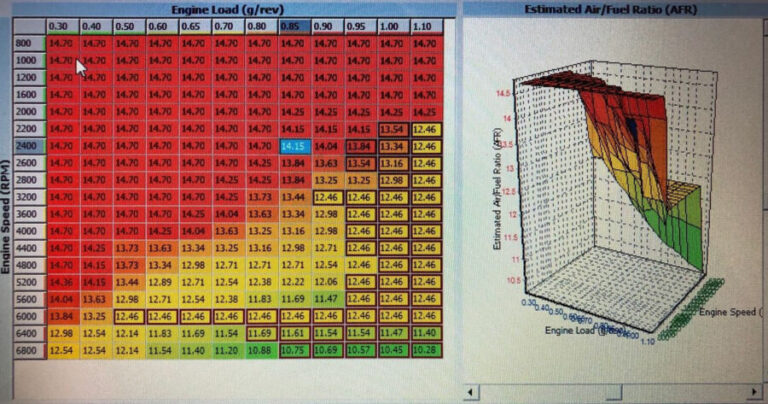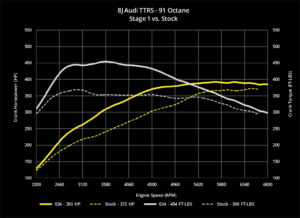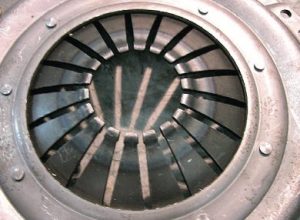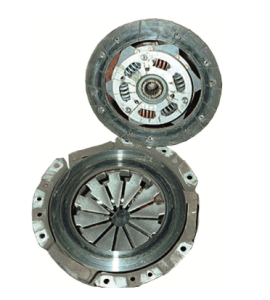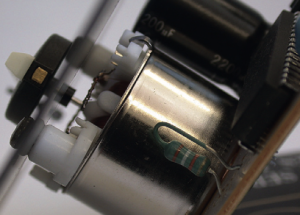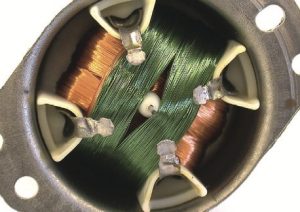Are you looking for ways to improve your car’s performance? One option you may have come across is engine remapping. Engine remapping, also known as chip tuning, is a process that involves modifying the software that controls your car’s engine to improve its performance. In this blog, we will cover everything you need to know about engine remapping, including its benefits, risks, and costs.
What is engine remapping?
Engine remapping involves modifying the electronic control unit (ECU) of your car to improve its performance. The ECU controls various aspects of the engine, including fuel injection, ignition timing, and turbo boost pressure. By remapping the ECU, you can change these settings to optimize your car’s performance.
The process of engine remapping involves connecting your car to a laptop computer, which is used to read the existing ECU settings and make the necessary changes. The remap is then uploaded back onto the ECU, and your car is ready to go.
What are the benefits of engine remapping?
There are several benefits to engine remapping, including:
- Improved performance: Engine remapping can significantly improve your car’s performance, including acceleration, top speed, and torque.
- Better fuel efficiency: By optimizing your car’s fuel injection, engine remapping can also improve fuel efficiency, saving you money on gas.
- Customization: Engine remapping allows you to customize your car’s performance to your liking, whether you prefer a more aggressive or fuel-efficient driving style.
- Enhanced driving experience: With improved performance and customization, engine remapping can enhance your driving experience, making your car feel like new.
What are the risks of engine remapping?
While there are benefits to engine remapping, there are also some risks to consider, including:
- Warranty void: Engine remapping can void your car’s warranty, so it’s essential to check with your dealership before making any modifications.
- Increased wear and tear: By increasing performance, engine remapping can put extra strain on your car’s engine and other components, leading to increased wear and tear and potentially higher repair costs.
- Legal issues: In some jurisdictions, engine remapping may not be legal, or it may require additional certification or approval.
What is the cost of engine remapping?
The cost of engine remapping varies depending on your car and the level of customization you want. Generally, engine remapping can cost anywhere from a few hundred to several thousand dollars. However, the cost can be offset by the fuel savings and improved performance.
In conclusion, engine remapping is a process that involves modifying your car’s ECU to improve its performance. While there are benefits to engine remapping, such as improved performance and fuel efficiency, there are also risks, such as voiding your car’s warranty and potential legal issues. Before considering engine remapping, it’s important to weigh the benefits and risks carefully and consult with a professional to ensure the process is done correctly.
When it comes to engine remapping, it’s important to understand that it’s not a one-size-fits-all solution. Each car has a unique ECU with its own set of settings that control the engine’s performance. Therefore, the remapping process needs to be customized for each car.
There are two main types of engine remapping: stage 1 and stage 2. Stage 1 remapping involves modifying the ECU to optimize the engine’s performance without any additional modifications. This type of remapping can usually be done without any physical changes to the car and can provide significant improvements in performance and fuel efficiency.
Stage 2 remapping involves more significant modifications to the car, such as upgrading the exhaust system or installing a larger turbocharger. This type of remapping can provide even greater improvements in performance, but it requires more extensive modifications and can be more expensive.
One thing to keep in mind when considering engine remapping is that it can affect your car’s emissions. If you live in an area with strict emissions regulations, it’s essential to check that your car will still meet those regulations after the remapping process.
Another important factor to consider is who will be doing the remapping. It’s crucial to work with a reputable and experienced professional who can ensure that the process is done correctly and safely. If the remapping is done incorrectly, it can cause significant damage to your car’s engine, potentially resulting in costly repairs.
Overall, engine remapping can be a great way to improve your car’s performance and fuel efficiency. However, it’s essential to weigh the benefits and risks carefully and work with a professional to ensure that the process is done correctly.
The cost of engine remapping can vary depending on a variety of factors, including the type of car, the level of customization desired, and the location of the service provider. Generally, engine remapping can cost anywhere from a few hundred to several thousand dollars.
Stage 1 remapping typically costs less than stage 2 remapping since it involves fewer modifications. The cost of stage 2 remapping can be more significant since it requires additional modifications such as a larger turbocharger or upgraded exhaust system.
It’s important to keep in mind that the cost of engine remapping can be offset by the potential fuel savings and improved performance. Engine remapping can increase fuel efficiency by optimizing the engine’s fuel injection, resulting in cost savings over time.
It’s also essential to work with a reputable and experienced professional when considering engine remapping. While it may be tempting to go with the cheapest option available, it’s crucial to ensure that the remapping is done correctly and safely to avoid costly repairs in the future.
Overall, the cost of engine remapping can vary, and it’s essential to weigh the potential benefits and risks carefully before deciding whether it’s worth the investment.

